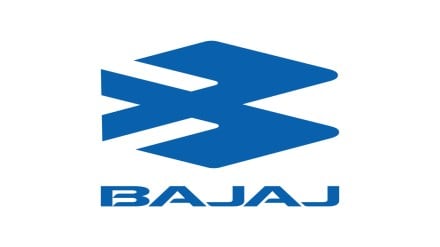Bajaj Auto’s share price plummeted 10% to an intra-day low of Rs 10,455.25 on the NSE after the company reported a sharp 31.4% drop in consolidated net profit after tax (PAT) for the second quarter of FY2024-25 (Q2FY25).
The two-wheeler major posted a PAT of Rs 1,385.44 crore, significantly below analyst expectations of Rs 2,198 crore.
Revenue Growth Falls Short of Projections
Despite revenue from operations increasing by 22% year-on-year (YoY) to Rs 13,127 crore from Rs 10,777 crore in the same quarter last year, the figure fell short of the estimated Rs 13,305 crore. Bajaj Auto attributed its revenue growth to strong domestic performance and a steady recovery in exports.
Domestic and Export Volumes on the Rise
Bajaj Auto’s domestic volumes saw a 22% YoY increase, reaching 7,76,711 units, compared to 6,37,556 units in the corresponding quarter of the previous financial year. Exports also grew 7%, with 4,44,793 units sold in Q2FY25, up from 4,16,397 units in Q2FY24.
Board Approves $10 Million Investment in Bajaj Brazil
The company’s board approved an additional investment of up to $10 million (Rs 84 crore) in the equity share capital of its wholly-owned subsidiary, Bajaj Brazil, to be made in phases.
EBITDA Growth and Margin
Bajaj Auto reported its best-ever earnings before interest, taxes, depreciation, and amortisation (EBITDA) of Rs 2,653 crore, reflecting a 24% YoY increase. The company’s EBITDA margin exceeded 20%, driven by double-digit volume growth, a richer sales mix, and the steady export recovery.
Bajaj Auto credited its strong Q2FY25 revenue to robust domestic performance and improving export figures, despite missing analyst projections for profit and revenue.
Brokerages on Bajaj Auto
Citi Maintains “Sell” Rating with Target of Rs 7,800
Citi has reiterated its “sell” rating on Bajaj Auto with a price target of Rs 7,800. The brokerage expressed surprise over the company’s cautious outlook on festive demand, with management reporting that industry volumes are up only 1% to 2% compared to last year.
Jefferies Recommends “Buy” with Rs 13,400 Target
On the positive side, Jefferies has given a “buy” rating, setting a price target of s 13,400. The brokerage highlighted Bajaj Auto’s growing market share in the electric two-wheeler segment, ramping up of CNG bike volumes, and its capacity expansion in Brazil.
Jefferies expects rising demand in the Indian two-wheeler market and a cyclical recovery in exports to drive the company’s volumes, forecasting a Compounded Annual Growth Rate (CAGR) of 14% between FY2024 and FY2027.
CLSA Assigns “Underperform” with Rs 9,493 Target
CLSA has taken a more cautious approach with an “underperform” rating and a price target of Rs 9,493. The brokerage noted that while Bajaj’s export volumes are recovering from a lower base, the stock is currently trading at 33 times FY2026 Earnings Per Share (EPS) estimates, signaling limited upside potential.
Goldman Sachs is “Neutral” with Rs 12,000 Target
Goldman Sachs gave a “neutral” rating with a price target of Rs 12,000, noting that Bajaj Auto’s Q2 performance was largely in line with expectations.
The brokerage added that increased visibility on electric vehicle (EV) launches and exports have helped offset moderate growth in the company’s internal combustion engine (ICE) motorcycle segment.
Stock Performance in Last One Year
The shares of Bajaj Auto have demonstrated mixed returns across various time intervals. In the last month, the stock delivered a negative return of 11.57%. Over the past six months, it exhibited strong momentum with returns of 17.14%, indicating a robust performance.
Year-to-date figures further emphasized the stock’s bullish trend, recording an impressive growth of 57.71%. Looking at the broader horizon, the shares have shown consistent strength, given returns of over 105.55% in the last year.
(Disclaimer: Views, recommendations, and opinions expressed are personal and do not reflect the official position or policy of Financial Express.com. Readers are advised to consult qualified financial advisors before making any investment decisions. Reproducing this content without permission is prohibited.)
